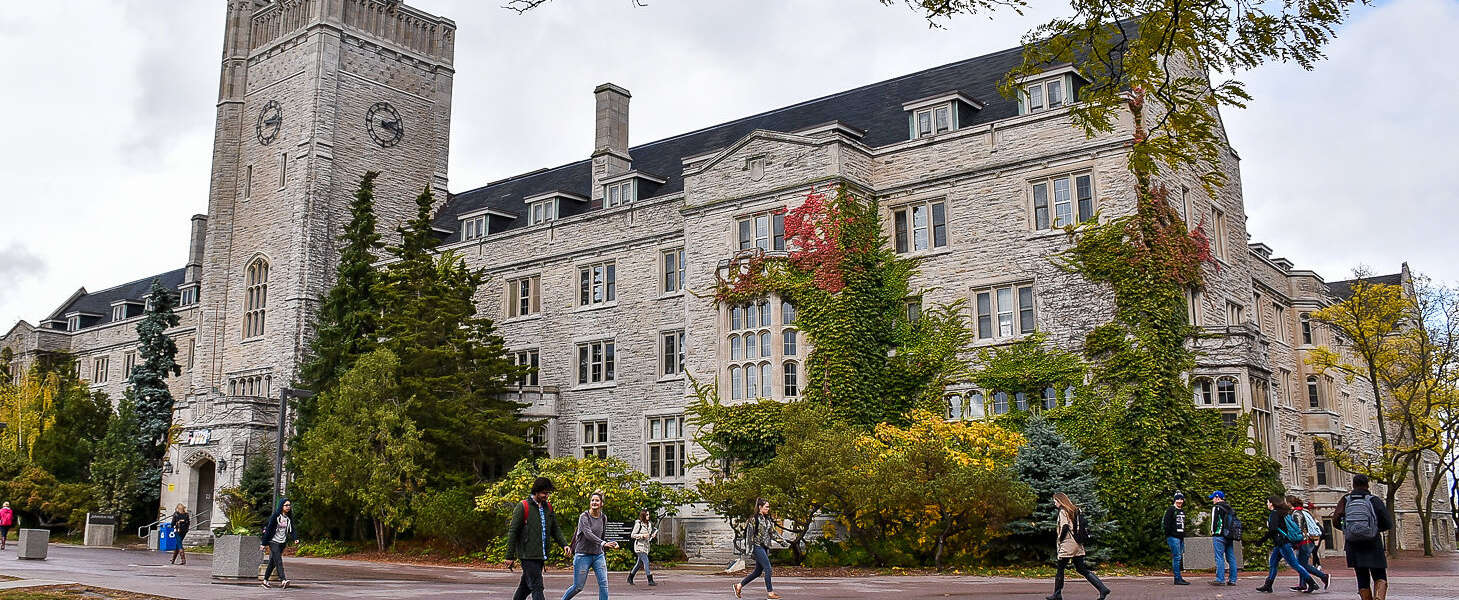 For the fifth year running, the University of Guelph ranks second among Canadian comprehensive universities in an annual national survey of top research institutions.
For the fifth year running, the University of Guelph ranks second among Canadian comprehensive universities in an annual national survey of top research institutions.
U of G claimed second spot out of 13 comprehensive universities – those with a full range of graduate programs and professional schools without a medical school – in the 2019 Research Infosource Inc. ranking of Canada’s Top 50 Research Universities.
The University was ranked 16th overall among the 50 institutions surveyed.
“The University of Guelph consistently ranks among the top research universities in Canada, reflecting our commitment to excellence in research and scholarship,” said Malcolm Campbell, vice-president (research).
“Once again, we rank first in research intensity and the amount of research income we attract from the private sector. These results demonstrate the importance we place on research and innovation partnerships and the real-world impact of our singular focus on improving life.”
The rankings are based on several measures, including total sponsored research income, the number of publications in leading journals and research impact.
The data, collected mostly from Statistics Canada, is from the 2018 fiscal year.
Among comprehensive universities, U of G was ranked second in the overall value of its research income, worth almost $150 million a year. It ranked first in research intensity, or average research dollars per faculty member ($188,500) and graduate student ($52,900). Among Canada’s comprehensive universities, U of G ranked first in corporate research income as a percentage of total research income.
Three university categories are included in the rankings: those with a medical school, those with graduate programs but no medical school and those with undergraduate programs only.
U of G’s standing reflects research strengths in many areas, notably in agri-food and the bio-economy, veterinary sciences, human health, arts and social sciences.
- Drawing on longtime research strengths in agri-food crops, U of G experts from across campus are bringing research rigour to bear on aspects of cannabis breeding, cultivation, production and health impacts – research that also produces highly qualified grads for Canada’s growing medicinal and recreational cannabis industry.
- A new $5-million ImprovLab to be constructed by 2021 will be a world-class, practice-based research facility to support investigations by U of G’s International Institute for Critical Studies in Improvisation.
- From heading off the next global pandemic to improving food security in Canada’s North, tackling some of humanity’s most pressing health problems at the intersection of human, animal and environmental health is the purpose of the new One Health Institute at U of G.
- U of G’s Bioproducts Discovery and Development Centre received $1 million for a project to turn co-products from ethanol production into new products. Profs. Amar Mohanty and Manjusri Misra of the BDDC received the Synergy Award for Innovation, recognizing university-industry partnerships in natural sciences and engineering.
- Lawrence Hill, School of English and Theatre Studies, is one of five Canadians to receive an inaugural Library and Archives Canada Scholars Award recognizing creation and promotion of the country’s literary and historical heritage.
- U of G’s Food from Thought project provided nearly $20 million to many of U of G’s top researchers to continue research that leverages leading agriculture and biodiversity science, big data, digital tools and technologies, economics and social sciences.
- The University’s Gordon S. Lang School of Business and Economics has launched the Marketing Analytics Centre, a research centre for studying marketing analytics and consumer-driven big data and the first one in Canada to use business analytics to explore consumer behaviour in food and health.
